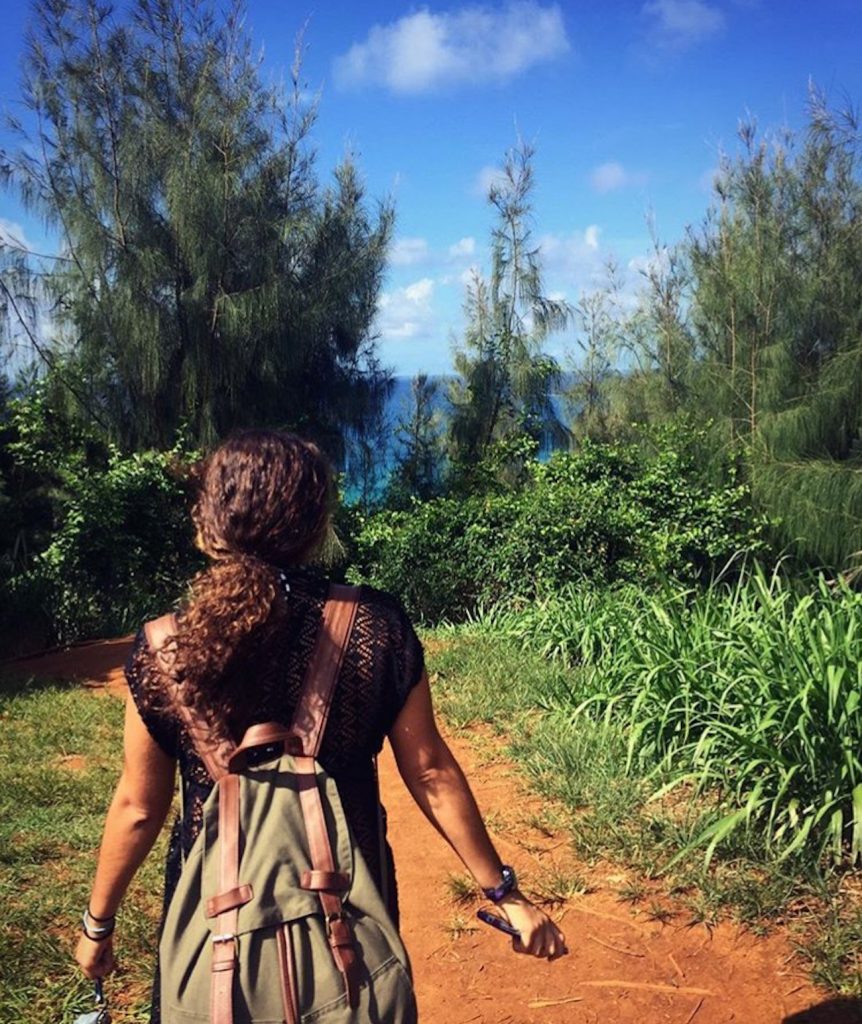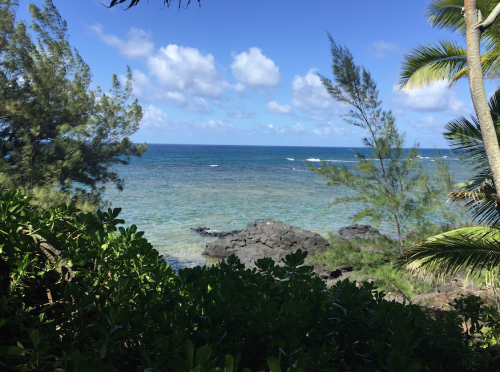
The ocean is international. But it is not cared for in the same way internationally.
I grew up on the water. I was always less than a mile from the water. Any sort of separation from the ocean for an extensive period of time would be difficult for me, and I would have to find my way back to it somehow. I have my own personal connection with the ocean, although I was never one who was fond of holding hermit crabs growing up because of their little claws, it still felt like my home. I never thought about a life without it. Until I found out we, as a country, were threatening a nation within a nation who depended on it more than I.

Kaua’i has become a special place to me, because it is home to Native Hawaiians who empathize with my connection to the ocean. However, their deep, spiritual connection to nature, both land and sea, serves as a fundamental belief in Hawaiian culture. A deeper connection that supersedes my own. Nature is the source, the origin, of all that exists to them.

For this reason, they stress the importance of respecting nature, being one with all of creation. Without such respect, one cannot feel complete. The ocean has played an important role in the lives of Native Hawaiians since their beginning, providing resources as well as physical and spiritual sustenance in their everyday lives. Ocean stewardship is embedded in Native Hawaiian culture.
From ridge to reef, Native Hawaiians believe it is their responsibility to care for their ‘aina—land, and their makai—sea. They care for and are concerned with the health of their rivers and nearshore marine resources, and the influence of those who are new to their land and do not know how to manage it. I fear, given the current political climate, the maintenance of their ocean stewardship will be threatened because of the powerful imposing hand of the United States.
Hawai’i was once a land of pono—a just land, a land where most of what was done was morally right. Before being invaded, they governed their ahupua’a—watersheds, but more like a complex system of land division—and it was successful for them because it took into account the resources within each division. There would be compensations for lack of natural abundance and governance by local chiefs. They could take care of their ocean from ridge to reef.
But based on the efforts of nonprofits like my community partner, the Hanalei Watershed Hui, and the anecdotes I have been told, it appears that the ocean is under a more severe threat for Native Hawaiians. For subsistence fishers and frequent swimmers, it is the runoff from farms and the leach from transfer stations impacting water quality. It is the oils and fuel lost by boats into the water. It is the boats entering the swim zone of Zone 1 of our Makai Watch.

As I previously stated, makai means sea or ocean in Hawaiian. The Hanalei Watershed Hui conducts and sponsors a project more formally known as Hanalei Mauka Makai Watch Program. Makai Watch is like Neighborhood Watch, but for the ocean! It provides local communities concerned with the health of our river and nearshore marine resources the opportunity to become directly involved in their protection.
All these components enter into play when Native Hawaiians think about the health of their ocean. The threat posed has grown worse, as I found out that the coast of Hawaii is home to one of the largest marine conservation areas in the world—home to over 7,000 species, some endangered, rare, endemic, or rarely even studied. The national marine monument known as Papahānaumokuākea, named after Papahānau and Wakea who gave rise to the Hawaiian Archipelago, the taro plant (which is sacred to the Native Hawaiian people), and the Native Hawaiian people in general, is under review as we speak by our current administration. The sanctuary, the cultural heritage preserved, the animals being protected, can all go away with a single signature.
So why should I care? This is not my home? As a frequent traveler and a person who loves our planet despite all the awful things it possesses, I still care about it. I still care about others. I still care about nature. I still care and love the ocean, and you should too, because it is international. Over 70% of our planet is straight water. Nothing else. Water. Ocean.

The ocean is cared about in many different ways in this world. In Singapore, it is cared about economically, because without the ocean, the trading port could not exist. In Japan, it is a food source, heavily depended on for raw fish and trade. In Western Mexico, it is survival. Men and even young boys travel for 15 days at a time to find fishing work in other villages and towns to provide income for their families. There is even a significant reliance on subsistence fishing there because some cannot afford significant luxuries to cook or buy other foods because of high cost. In Australia, the ocean is an attraction but it is also a place in need of protection as well. Reefs like the Great Barrier, are bleaching and Australia’s waters are home to many unique species that have barely been studied as well. It has been proven that Australia’s coastlines and +10 miles from them are in danger. These are only a few places I have had the honor of going to.
My travels and my research as a Duke student, a DukeEngager, a New Englander, a listener, a learner, and a human being have not deteriorated my personal connection with the ocean. I feel that they have only made it stronger. Although the places I have visited prior to Kaua’i may not have treasured the ocean as much as I, I still recognize their individual connections even if they are not so deeply embedded in a culture, but more in ways of life. Being in a place for 8 weeks in the summer, meeting with people who care about the ocean as much as I do, really has given me more hope for it. Hope that there will continue to be more people out there, people here, that care about the future of our ocean, the future of our makai.
“I na malama ‘oe i ke kai, malama no ke kai ia ‘oe.”
“If you care for the ocean, the ocean will care for you.”
